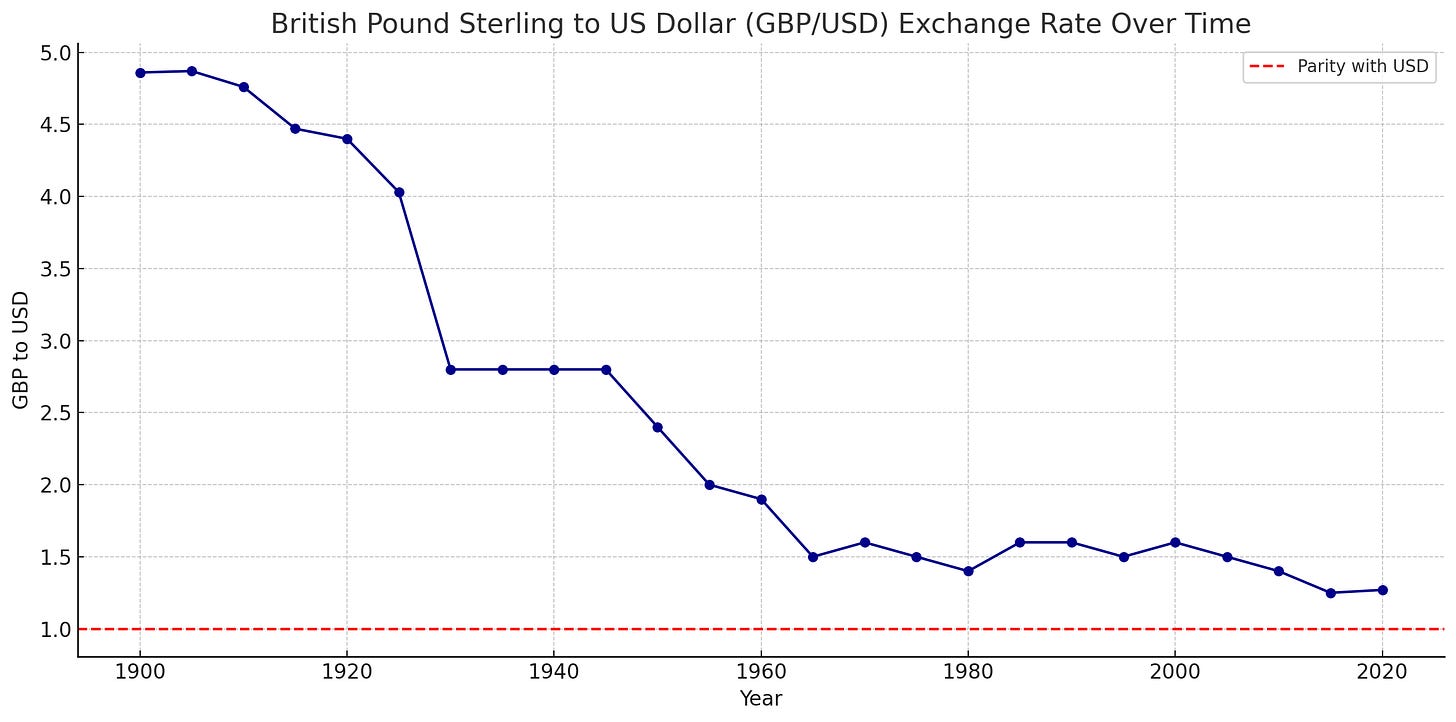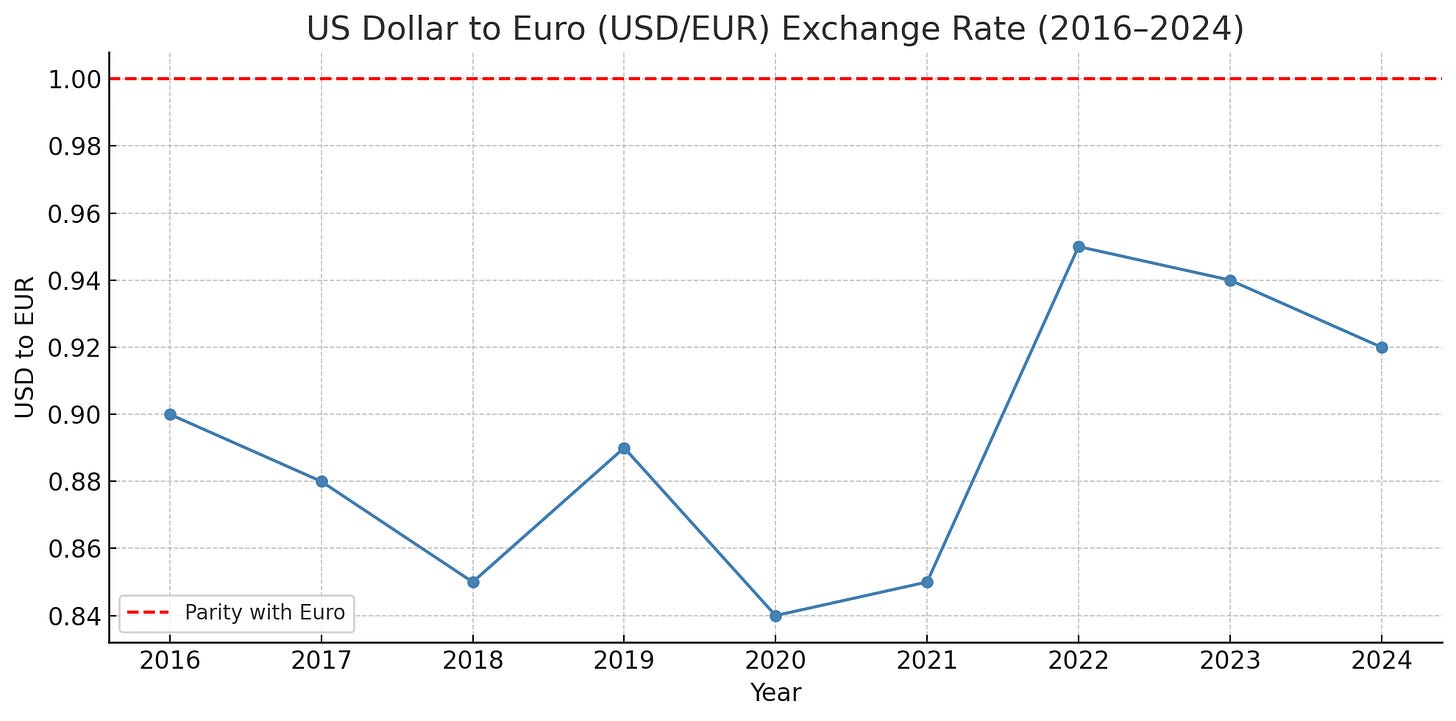Is Democracy Still the Worst Form of Government?
Musings on the dollar, democracy, and a world on edge
“Democracy is the worst form of government, until you consider the alternatives”, said Winston Churchill famously in November 1947.
I have written previously about how much I have been an admirer of USA’s open attitude to world trade.
I have also been an admirer of the democratic principles it has represented and its efforts to export these to the rest of the world. The separation of powers between the executive, the judiciary and the legislative sections of the government is a model that has inspired many democracies in the world, including the two that have most impacted my life directly - India and Switzerland.
Swiss democracy is often the butt of jokes -
“oh you guys vote on everything”
“will you have a referendum on the time you wake up”
“it depends on which canton you live in”
But the jokes hide something profound. Yes, the Swiss vote frequently—on issues affecting the federation, their canton, and even their local community. But they are also deeply engaged and vote with intelligence.
If the candidate running for President tells them that (s)he will bring down prices on Day 1, they will NOT believe this statement. Or if they are told that immigrants are eating their pets.
But I digress.
In the last few years there have been efforts to build an economic alliance that would be strong enough to replace (or at least rival) the USD as a world currency. When asked for my opinion, I have said “I don’t see it happening in my lifetime.”
Why do I think that?
Because there is no monetary system of its size that is governed by an institution that is truly independent from the executive.
Because there is no democratic system that can rival the United States.
Because no currency of that size derives its value almost entirely from market forces of supply and demand.
Do you really want Mr. Xi to determine your purchasing power? Or would you rather hand it over to a patchwork of economies with a shared currency but no shared governance? Or let an alliance formed by self-aggrandising leaders dictate exchange rates?
The 80-year period since the end of WWII has often been cited as the most prosperous in the history of the planet, and much of this has been the result of friendly cooperation between countries resulting in lack of any major conflicts. Institutions like the World Bank and IMF (both born in the USA) have played a huge role in lifting up the so-called developing world.
Pre-WWI, the reserve currency of the world was the British Sterling. The UK emerged from WWI with massive debts and a weakened economy. What followed was a continuing shift away from the sterling post WWII and the Bretton Woods Agreement.
The Bretton Woods Agreement ended in 1971 when the US could no longer back the dollar with gold, and the fixed exchange rate system collapsed. The dollar found its true value and remained the global reserve currency. Many countries pegged (or semi-pegged) their national currencies to the US dollar.
Even recently—during COVID and the Ukraine war—we saw capital rushing into USD assets, reaffirming its role as a safe haven. U.S. government responses during those crises helped maintain that confidence.
One important pillar of the USD was that it was everywhere. Americans sent it abroad by buying goods cheaper than they could make themselves. By using AID as a way to make people want to have USD in their pockets. By using their money to give medicines and vaccines to people who could not afford them otherwise. They created demand for the USD - as well as goodwill towards it.
Not helping any more. Government policies. They aren’t helping. It’s fine to fix things that aren’t working. But is it also fine to break things that ARE working?
Among OECD nations, the U.S. stands alongside Australia in allocating just 0.22% of Gross National Income to foreign aid—about $55 billion. For perspective: Tesla lost $130 billion in market cap on March 11, 2025 alone.
The impact of freezing or cutting this aid will make no material difference to anyone in the US, but the effect it will have on the millions who were able to get life saving medicines that they could not otherwise afford will be enormous. It will erode trust in the U.S. dollar as a global reserve currency.
And money, in the end, is all about trust.
I’m not quite ready to switch to RMB or INR—but I am open to the idea that U.S. policies are slowly undermining the dollar’s global role. Especially when those policies seem more focused on bullying than leadership.
As President Bartlett says in The West Wing, Season 4, Episode 12:
“America should lead the world, not just bully it.”
The quote about democracy by Churchill is being put to the test - 78 years after he said it in a debate on parliamentary reforms. Since then the world has seen many forms of government. Today, the American public seems poised to test an alternative to democracy.
And the world is watching.
+++++
Endnotes:
The full quote is ‘Many forms of Government have been tried, and will be tried in this world of sin and woe. No one pretends that democracy is perfect or all-wise. Indeed it has been said that democracy is the worst form of Government except for all those other forms that have been tried from time to time.…’
Winston S Churchill, 11 November 1947
In fact, the Swiss do not vote for a President directly.
India contributed 0.65% and Switzerland 0.44% respectively of their GNI to overseas aid. Most of the Indian aid was in the form of Letters of Credit that enabled its goods to be exported. Much of the money sent by the US to Ukraine as “aid” since the start of the war came back into the US in the form of arms and other purchases.
Cutting foreign aid is impacting Americans. Those who are being fired from their jobs.
Losing trust in US institutions will also have other far reaching (and perhaps some unintended) consequences. None of these are likely to be positive.






I agree, Ashok. Good to put it out there. I wonder though if the system wasn't collapsing anyway. I think if the dollar depreciates by 10% or something, balance can be restored without tariffs. But getting credibility back is another issue.